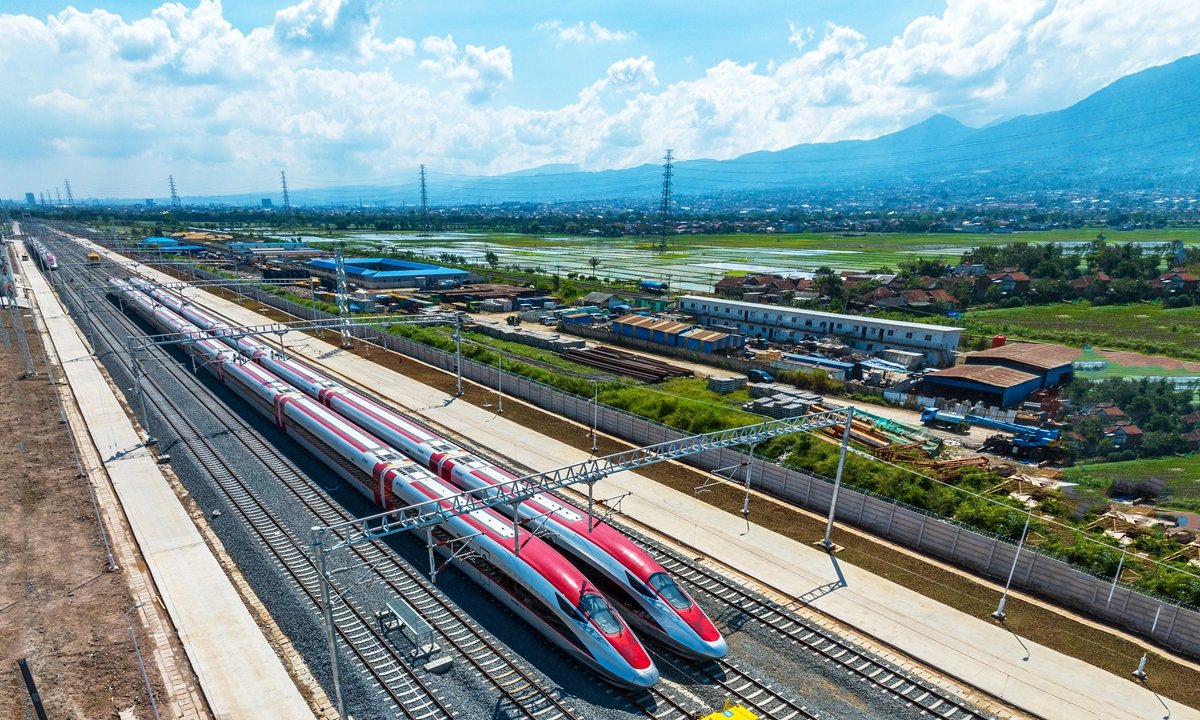As China prepares for the upcoming 3rd Belt and Road Forum for International Cooperation (BRF), speculations in the foreign media sphere have begun to make rounds, particularly focusing on the attendance of global leaders. Recent reports have attempted to shade the Belt and Road Initiative (BRI) by insinuating non-attendance from leaders of developed countries.
However, an insider familiar with the forum’s preparations has shed light on the situation. The source disclosed to the Global Times that the primary focus of the BRF invites are countries in the developing phase. This is consistent with China’s approach, emphasizing quality and efficacy rather than sheer numbers.
At its heart, the BRF is a platform designed for collaboration in development. The majority of the BRI partners come from emerging economies, thus it is logical that the majority of the invited leaders hail from these nations.
Furthermore, while some Western media outlets have suggested a dwindling interest in the BRF, insinuating that European leaders like President Emmanuel Macron, Chancellor Olaf Scholz, and Prime Minister Giorgia Meloni have sidestepped the forum, it is essential to clarify. China, according to the insider, has not extended invitations to these leaders. Thus, suggestions that European nations are “avoiding participation” lack foundation.
Highlighting the interest in the forum, many countries have approached China, eager to secure an invite for the upcoming BRF. These requests suggest that the international community’s eagerness remains robust.
Reflecting on the past decade, the BRI has risen, surpassing multiple hurdles to gain international respect and recognition. A report from the European think tank, the Bruegel Institute, affirmed the initiative’s success. Developing nations, especially, view the initiative positively and appreciate the developmental opportunities it offers.
China remains thoughtful and strategic about the forthcoming forum’s invitation list. The BRF is not a one-off event. Thus, while some leaders might grace this year’s forum, others could feature in subsequent ones. The primary objective is to create an environment that fosters meaningful dialogue, ensuring every leader can voice their perspectives.
Globally, the BRI’s reach is expansive, touching over three-quarters of world nations and multiple international organizations. It’s noteworthy that the accolades it has received have predominantly come from the international community, particularly from developing nations.
The BRF’s doors, the source stated emphatically, are open to any entity dedicated to international cooperation, economic linkages, and the United Nations’ 2030 Agenda for Sustainable Development. Even if some developed nation leaders, as mentioned in media reports, aren’t on the invitation list, other representatives from these nations are always welcome. If they opt not to attend, it’s their choice. The initiative’s success isn’t determined by the number of developed nations attending.
Marking the Belt and Road Initiative’s 10th anniversary, its impact is evident. Professor Song Wei of Beijing Foreign Studies University noted the forum’s significance. For China, it is an avenue to collaboratively achieve more for the BRI, pushing the global economic trajectory towards recovery and sustainable growth.
In the last decade, China’s partnership with various stakeholders to actualize the Belt and Road has seen blueprints transformed into reality. These have produced tangible benefits for nations and their citizens. As per available data, nearly a trillion US dollars in investments have been spurred by the BRI, creating over 3,000 cooperative ventures. This initiative has provided employment for approximately 420,000 individuals in countries along its route and has elevated nearly 40 million people above the poverty line.
The Bruegel Institute report adds another layer of insight, praising China for offering tangible advantages to BRI-aligned countries through trade and investments. China’s role complements global institutions like the World Bank and the Asian Development Bank, opening fresh developmental avenues for nations.
Professor Song added that the BRI is more than just a project initiated by China. It’s a globally recognized effort, constructed collaboratively and intended to be shared worldwide. The BRI’s essence lies in extensive consultations, mutual efforts, and shared advantages, making its international recognition unsurprising.
Throughout the BRI’s journey, China has upheld values of inclusivity and collaboration. Unlike global development that caters to a few, the Belt and Road Initiative aims for a universally beneficial model. Attempts to tarnish the image of the BRI and the synergy between China and its partners are baseless and bound to fall apart upon scrutiny.
In sum, the Belt and Road Initiative is a testament to China’s commitment to global development and cooperation, and the upcoming BRF is a reflection of that commitment.
Read More:
